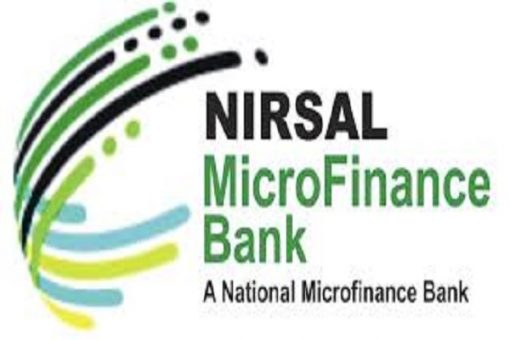More than 65 per cent of the N528.1 billion given out as loans to Nigerians by NIRSAL Microfinance Bank (NMFB) has been recovered, The Nation reports.
The bank has recovered over N342.6 billion of the facility from debtors, who benefitted from the loans disbursed on behalf of the Federal Government.
It also ruled out any arbitrariness in the increment of interest rates on the loans from five to nine per cent, describing it as s response to changes in the Central Bank of Nigeria’s (CBN) benchmark rate.
The government introduced the loans in 2020 under the COVID-19 pandemic economic recovery scheme.
A source said that the substantial recovery showed the bank’s robust loan recovery mechanisms and its determination to cut its non-performing loans portfolio.
Despite the official figure being a substantial portion of the outstanding debts, it was learnt that the recovery may have been higher.
“Officials are keeping certain recovery figures confidential,” The Nation further learnt.
The bank’s loan recovery strategy is built on the use of the Global Standing Instruction (GSI) system, a powerful debt recovery tool that allows the bank to automatically deduct loan repayments from any financial institution where the debtor has funds.
The GSI system ensures that as long as a borrower remains active within the Nigerian financial system, the NMFB can collect its dues seamlessly.
‘This system has become a critical asset in improving recovery rates for the microfinance bank, especially in cases where debtors hold accounts in multiple banks,” the source said.
In addition to the GSI system, NIRSAL MFB has said that its loan recovery efforts extend to the families of deceased borrowers. Although it is practically impossible to collect from the deceased, NMFB officials have reported that in many cases, families – especially from the Muslim community – have voluntarily taken on the responsibility of repaying outstanding loans left by their loved ones.
“This cultural practice has contributed to the bank’s loan recovery success, even in challenging circumstances”, the source added.
Another official of the NMFB, who spoke on condition of anonymity, said the willingness of family members to step in and settle debts has been a notable trend, with deceased borrowers’ families demonstrating a high level of financial responsibility.
The development has allowed the bank to reduce its loan delinquency rate further while maintaining positive relations with the wider community.
Despite the commendable strides recorded in recovering a significant portion of its loan portfolio, challenges persist for NFMB due to the varying maturity periods of different loans.
Loans disbursed under the Agri-business/Small and Medium Enterprise Investment Scheme (AGSMEIS) have a five-year repayment period and are yet to enter full repayment phases due to moratoriums.
The NMFB official noted that the loans, which were crucial to sustaining small businesses during the COVID-19 pandemic, would be paid at the end of the designated grace period.
The more than N500 billion were given under various schemes aimed at supporting businesses and individuals affected by the pandemic.
As part of its effort to remain transparent, the NMFB has addressed concerns raised by borrowers regarding what they perceive to be inflated repayment figures.
The bank explained that the increase in interest rates from five per cent to nine per cent was not arbitrary but was tied to changes in the Central Bank of Nigeria’s (CBN) benchmark rate.
The increase was implemented in line with CBN directives, and NMFB has communicated these changes to borrowers through bulk SMS messages, the bank explained.
The official said: “This interest rate adjustment has led to complaints from some borrowers, particularly those who took out loans under the previous lower interest rates.
“However, the bank remains committed to resolving such disputes and ensuring that borrowers are treated fairly. It encourages borrowers to contact the bank through its various communication channels if they have concerns about their loan terms or repayments.”
The bank restates it is dedication to resolving any issue borrowers may face.
A statement from the bank reassured borrowers that disputes or misunderstandings would be handled fairly and promptly.
Borrowers are urged to utilise the bank’s communication platforms to raise concerns, whether they pertain to interest rates, repayment schedules, or other loan-related issues.

